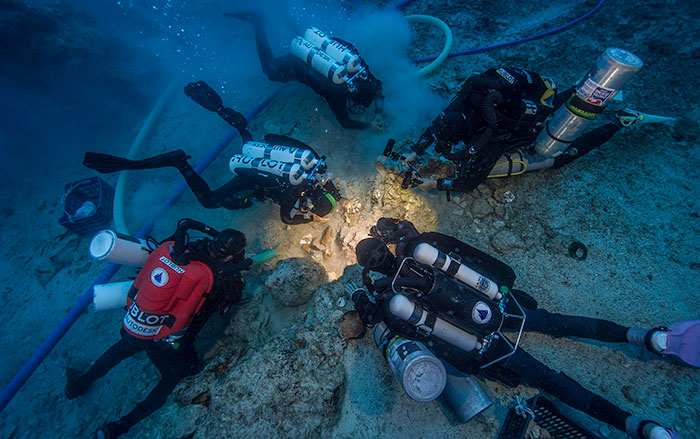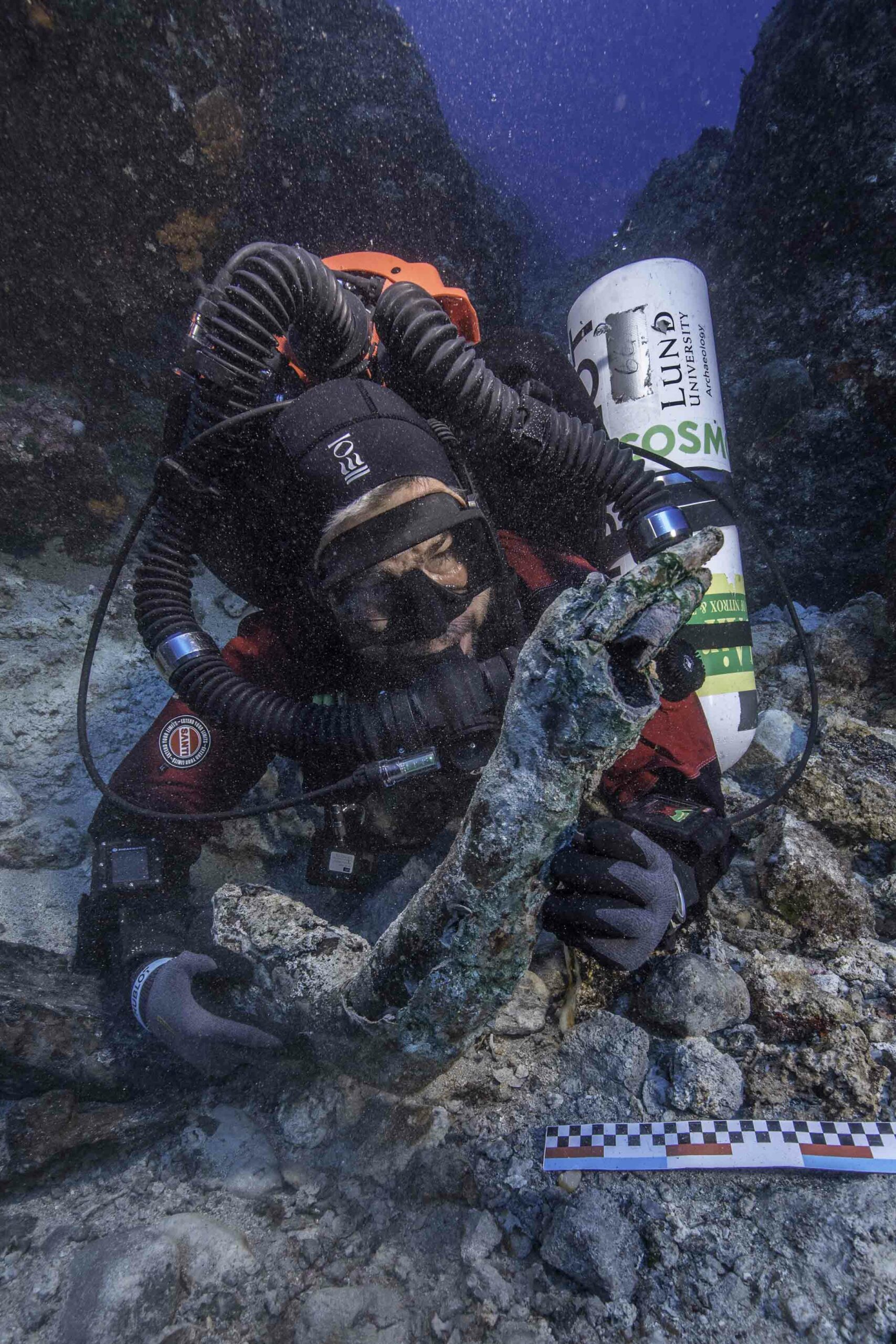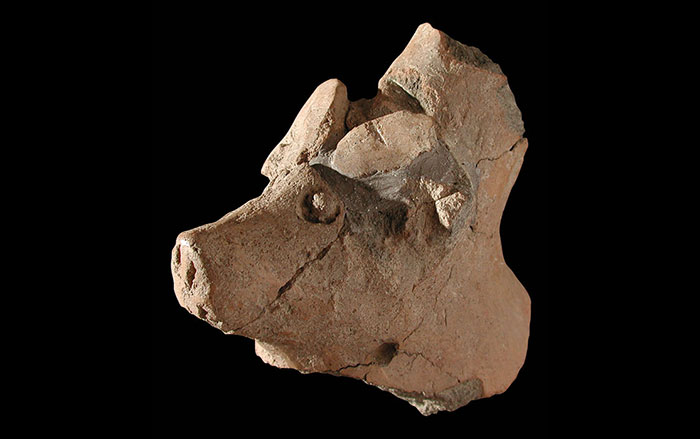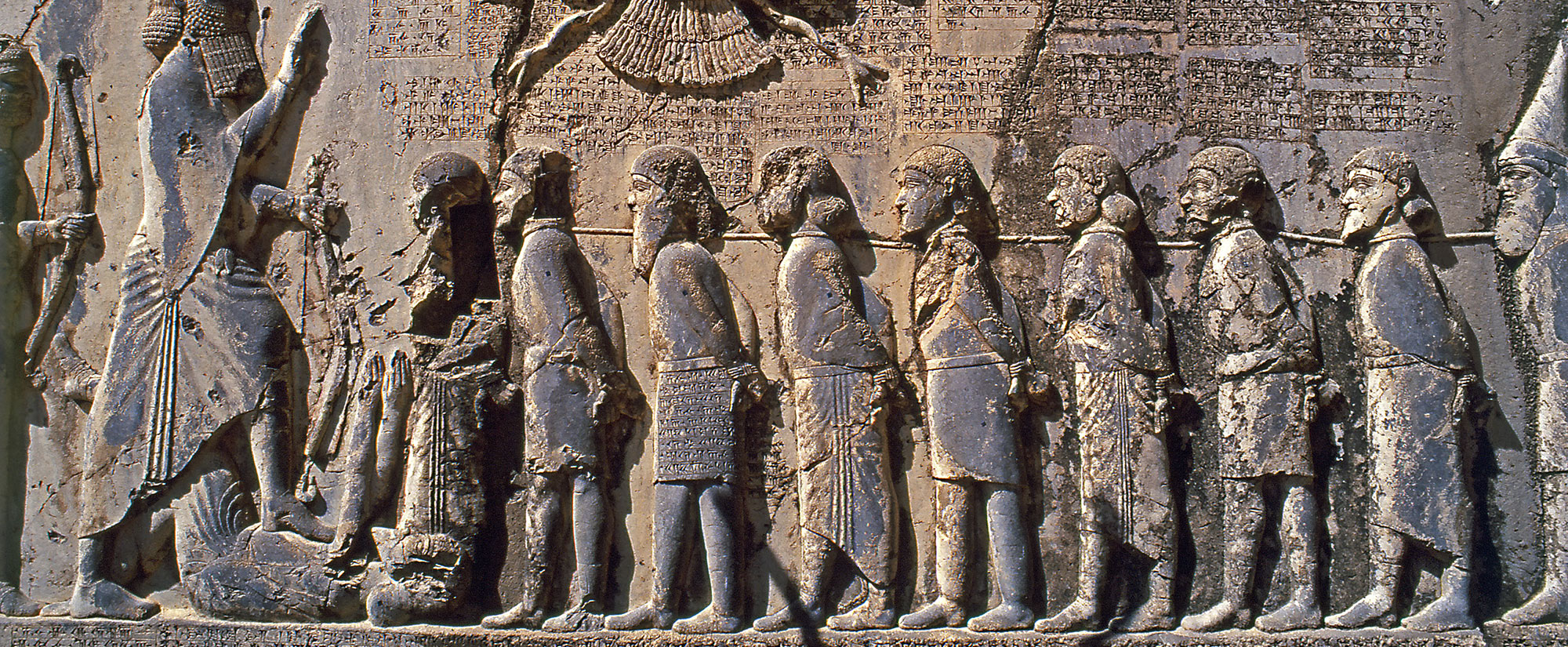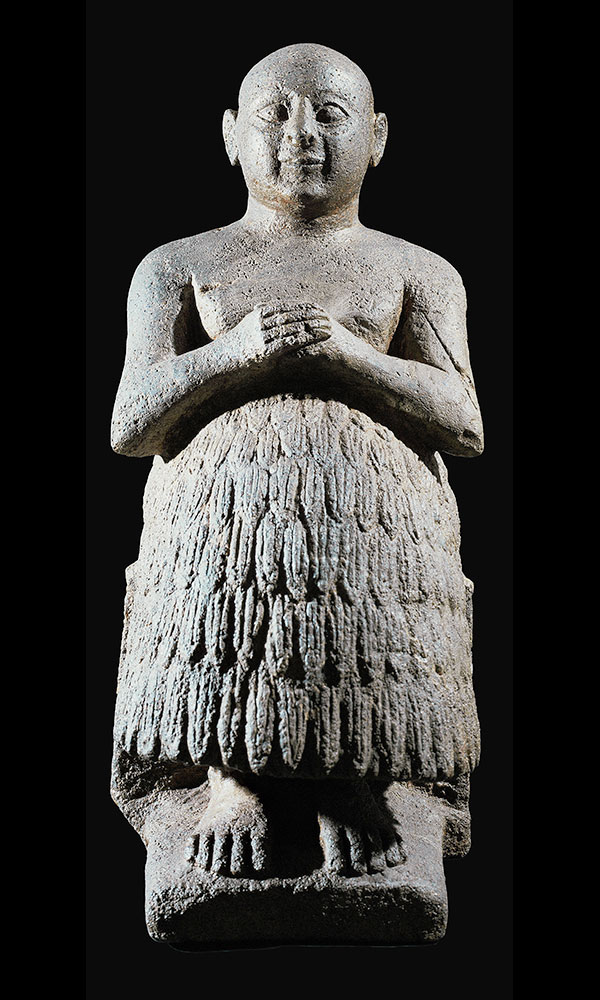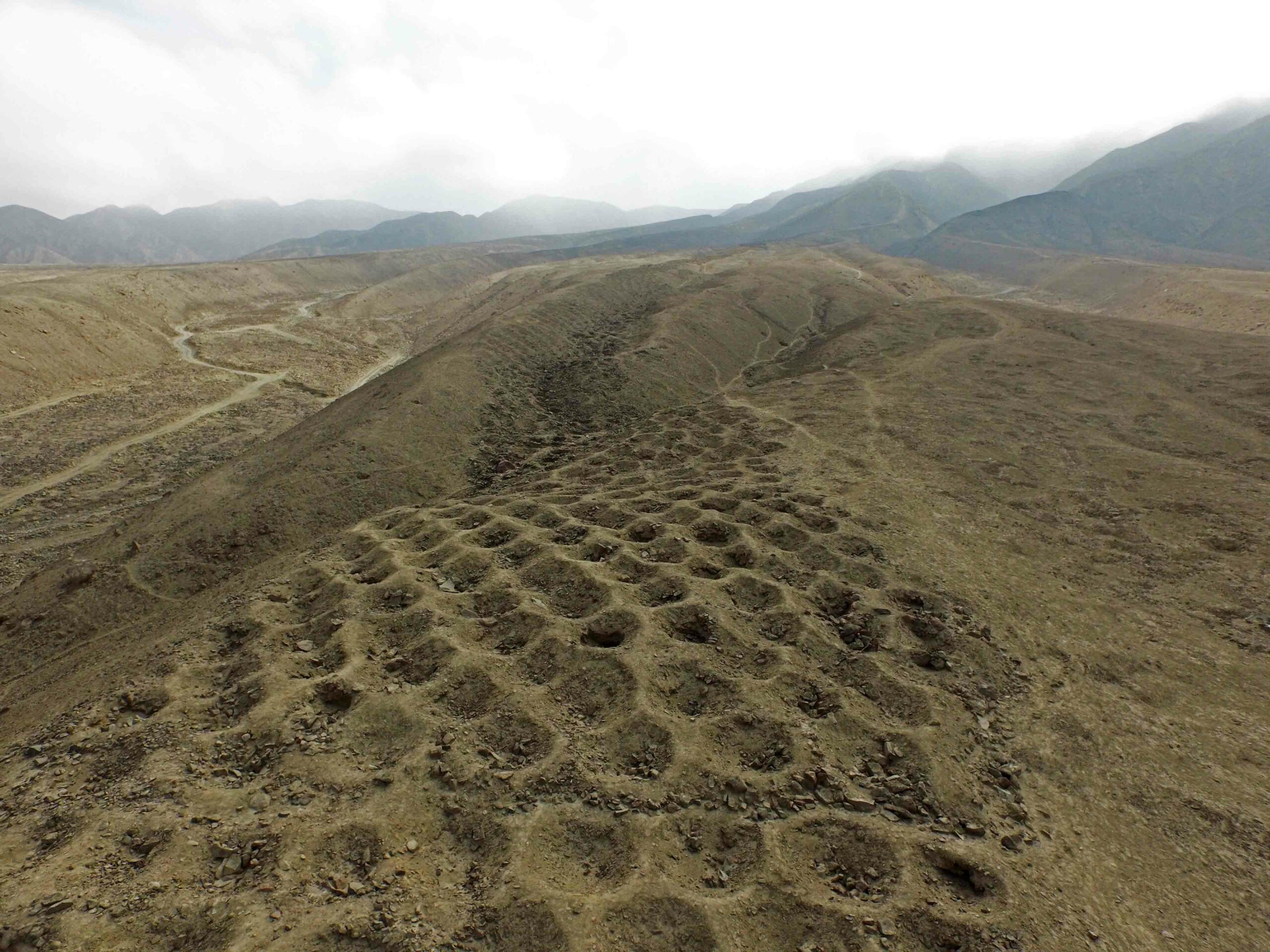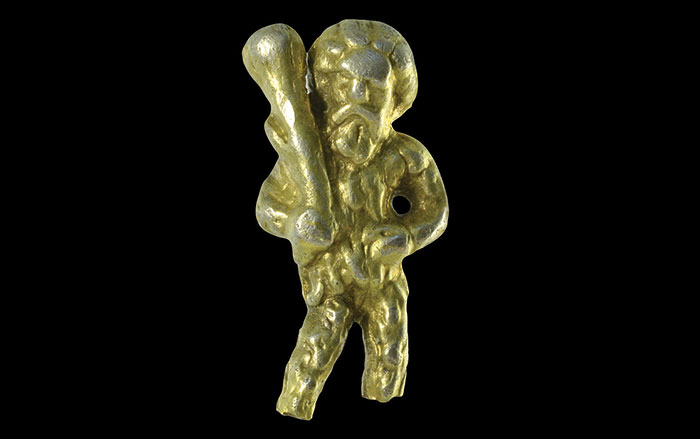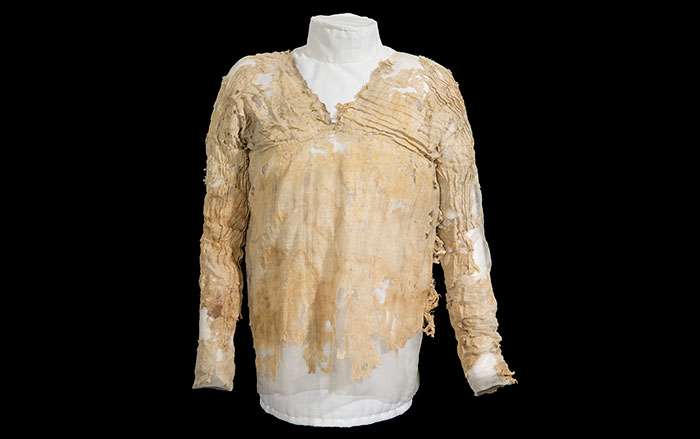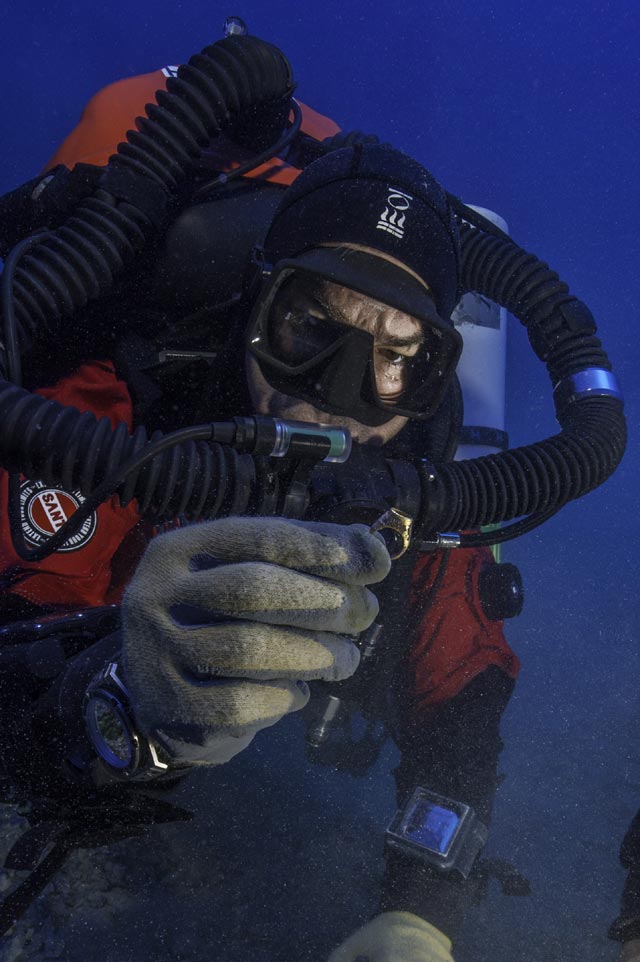
ATHENS, GREECE—Greek and American archaeologists recovered some 60 artifacts, including a bronze spear that is thought to have been part of a statue, four fragments of marble statues, and a gold ring, during a recent survey of the Antikythera shipwreck. Located off the coast of the Greek island of Antikythera, the first-century B.C. shipwreck was discovered by sponge divers in 1900. The Associated Press reports that the team did not recover any additional pieces of the Antikythera Mechanism, but they will continue to look for pieces of the device, whose bronze gears and plates are thought to have been used to track the position of the sun, the phases of the moon, the positions of the planets, and the timing of eclipses. For more, go to "Greece's Biggest Tomb."


